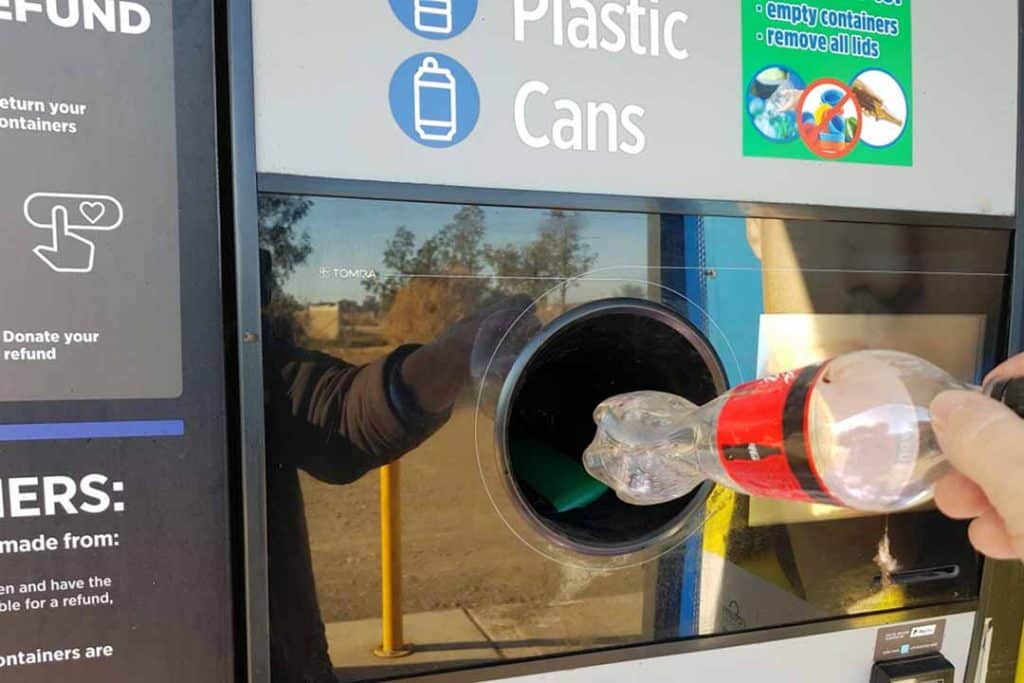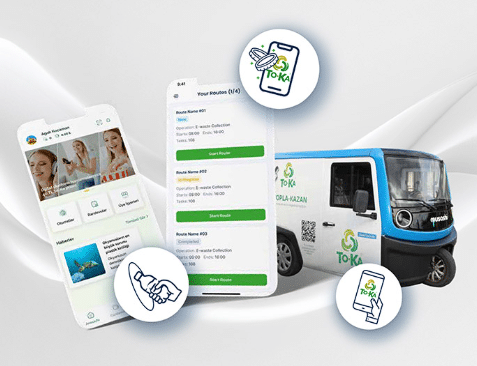Waste & material traceability solution for sustainable facilities

Recycling rates have plateaued in many regions despite decades of awareness campaigns and policy initiatives. Traditional recycling systems, dependent on consumer goodwill and manual sorting processes, struggle to achieve the high-quality material recovery needed for a truly circular economy. Reverse vending machines offer a concrete solution by combining convenience, accuracy, and incentives to drive measurable increases in participation rates.
The fundamental challenge with conventional recycling lies in contamination and participation gaps. When consumers deposit mixed materials into standard recycling bins, the sorting burden falls on waste management facilities where contamination rates can exceed 25%. This contamination reduces the quality of recovered materials, making them less valuable to manufacturers and often unsuitable for high-grade applications.
Moreover, traditional systems provide no immediate feedback or incentive for proper recycling behavior. Consumers deposit materials and hope for the best, with no visibility into whether their efforts actually contribute to material recovery. This disconnect between action and outcome undermines long-term engagement and fails to build the recycling habits necessary for circular economy success.
The economic reality compounds these challenges. Manual sorting is labor-intensive and costly, while contaminated materials often end up in landfills or low-value applications despite consumers’ best intentions. Without direct incentives or quality control at the point of deposit, traditional systems struggle to achieve the material purity and participation rates needed for meaningful environmental impact.
Reverse vending machines address these challenges by bringing automation, quality control, and immediate rewards to the point of deposit. These intelligent systems use advanced sensors and recognition technology to identify, sort, and process recyclable materials with precision that far exceeds manual sorting capabilities.
The technology behind modern reverse vending machines is sophisticated yet user-friendly. When a consumer inserts a bottle or can, the machine instantly analyzes the material type, brand, size, and condition. Only items meeting specific quality criteria are accepted, ensuring that recovered materials maintain the purity levels required for high-value recycling applications. This automated quality control eliminates the contamination issues that plague traditional systems.
Perhaps more importantly, reverse vending machines create an immediate value exchange that shifts recycling from a civic duty into a rewarding experience. Users receive instant feedback—whether through monetary rewards, loyalty points, or digital credits—that reinforces positive behavior and encourages repeat engagement. This direct incentive structure drives significantly higher participation rates across all demographic groups.
The data capabilities of these systems extend their impact beyond individual transactions. Smart recycling solutions like reverse vending machines generate real-time analytics on material flows, user behavior, and system performance, enabling operators to optimize placement, maintenance, and reward structures for maximum effectiveness.
The precision and purity achieved by reverse vending machines directly supports circular economy principles by ensuring that recycled materials can re-enter manufacturing processes at the highest possible quality levels. When beverage containers are collected through reverse vending systems, they typically achieve purity rates exceeding 95%, compared to 60-70% for materials processed through traditional recycling streams.
This quality differential has profound implications for manufacturers seeking to incorporate recycled content into new products. High-purity materials from reverse vending systems can be used in food-grade applications and premium products, commanding significantly higher prices than contaminated recyclables. This economic value creates sustainable funding mechanisms for expanded recycling infrastructure and improved reward programs.
The environmental benefits compound over time as higher recycling rates reduce the demand for virgin materials and associated extraction processes. Studies show that regions with comprehensive reverse vending machine networks achieve beverage container recycling rates of 85-95%, compared to 30-50% in areas relying solely on traditional collection methods.

The concrete benefits of reverse vending machines become clear through real-world implementations like the To-Ka system developed in partnership with Bell Holding. This innovative rewarded recycling program demonstrates how advanced technology can create sustainable circular economy solutions that benefit consumers, businesses, and the environment simultaneously.
The To-Ka system leverages Evreka’s circular economy solutions to create a comprehensive ecosystem where packaging waste is efficiently separated at its source through strategically placed reverse vending machines. Users deposit beverage containers and receive immediate rewards through a digital platform that tracks their environmental impact and provides tangible incentives for continued participation.
What sets the To-Ka system apart is its focus on high-quality raw material recovery. By ensuring that only clean, properly sorted materials enter the recycling stream, the program achieves the material purity levels required for closed-loop recycling in the packaging industry. This approach not only increases recycling rates but also creates valuable secondary raw materials that can directly replace virgin resources in manufacturing processes.
The success of the Bell Holding partnership demonstrates how reverse vending machines can scale beyond individual transactions to create systemic change in waste management and resource recovery. The program’s data-driven approach provides insights into consumer behavior, material flows, and system optimization opportunities that inform broader sustainability strategies.
As reverse vending machine technology continues to evolve, we’re seeing integration with broader smart city infrastructure and digital platforms that extend their impact beyond individual recycling transactions. Modern systems can connect with mobile apps, loyalty programs, and sustainability tracking platforms to create comprehensive circular economy ecosystems.
The scalability of these systems makes them particularly attractive for organizations seeking to meet ambitious sustainability targets while engaging consumers in meaningful environmental action. Unlike traditional recycling programs that rely on behavior change alone, reverse vending machines align economic incentives with environmental goals, creating sustainable participation that grows over time.
Looking ahead, the integration of artificial intelligence and machine learning will further enhance the capabilities of reverse vending systems, enabling them to adapt to local conditions, optimize reward structures, and predict maintenance needs. This technological evolution promises even higher recycling rates and more efficient resource recovery as these systems become more intelligent and responsive.
Reverse vending machines represent more than a technological upgrade—they’re a fundamental reimagining of how recycling systems can engage consumers, ensure material quality, and drive circular economy outcomes. By combining automation, incentives, and data analytics, these systems achieve recycling rates and material purity levels that traditional approaches simply cannot match.
The success of programs like To-Ka demonstrates the real-world potential of rewarded recycling systems to create lasting environmental and economic value. For organizations ready to move beyond conventional recycling approaches, reverse vending machines offer a proven path to higher participation rates, better material recovery, and meaningful progress toward circular economy goals.
To explore how our business model with Bell Holding contributes to the circular economy in the packaging industry, download our “Rewarded Recycling System Success Story” and discover the benefits of efficiently separating packaging waste at its source while increasing recycling rates of high-quality raw materials.
Request a demo to see how Evreka’s smart recycling solutions can improve your sustainability program and drive measurable circular economy results.
Learn more about our comprehensive smart waste management solutions and explore additional success stories from our circular economy partnerships